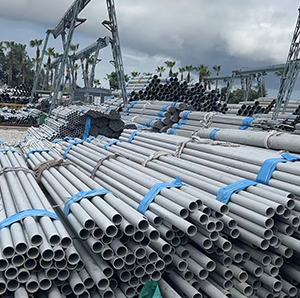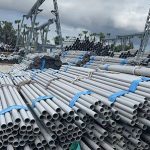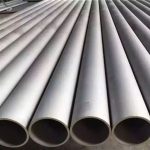310 stainless steel seamless pipe
310 stainless steel seamless pipe is a kind of stainless steel pipe, generally speaking, the production environment of this pipe is relatively rough, not as exquisite as the laboratory experiment, so there will be some problems in the production process leading to some damage to the surface of the stainless steel seamless pipe.- BrandStainless steel plate
- Place Of OriginJiangsu Province, China
310 stainless steel seamless pipe is a kind of stainless steel pipe, generally speaking, the production environment of this pipe is relatively rough, not as exquisite as the laboratory experiment, so there will be some problems in the production process leading to some damage to the surface of the stainless steel seamless pipe, of course, this damage for the use of stainless steel seamless pipe is not much impact. It just doesn’t look pretty. How to solve some surface damage of stainless steel seamless pipe?
⑴ Hot tempering color
If there is no rust steel in the process of riveting or grinding is heated to a certain low temperature in the atmosphere, chromium oxide hot tempering color will emerge on both sides of the weld, under the weld and at the bottom. Thicker oxides are normally colored. In this case, the thermal tempering color and other oxidation layers are not only eliminated, but also the chrome-poor non-metallic layer above them is stopped. When any of these oxide layers emerge, the non-metallic chromium content will increase, resulting in an increase in the erosion resistance of the sea area. The color of the heat tempering is thinner than that of the oxide cover film and is obviously visible. Colors vary from thin to thick, ranging from iridescent, blue, purple to light yellow and brown. It is caused by low temperature or a short period of high and low stop.
(2) Adhesive residue
When the tape and cover paper are removed, there is always a whole residue of the adhesive which is no rust steel name. Then the need to use fine abrasive stop machine clearing. However, when exposed to the light and harmonious atmosphere, the adhesive hardens, constituting the erosion source of crevice erosion. If the adhesive is not hard, it can be removed with inorganic flux.
(3) Welding splash
However, when the stainless steel seamless pipe adopts the two riveting processes of gas shielded non-metallic arc welding and arc welding with flux core, if the riveting parameters are not used, a small amount of splash will be formed. When such situations arise, the parameters must be shifted. If you want to deal with the result of riveting splash, each side of the joint should be coated with anti-splash agent before riveting, which can eliminate the adhesion of the splash. How to solve some surface damage of stainless steel seamless pipe? Riveting splash has a lot to do with the riveting process. Similar gas shielded tungsten arc welding or inert gas shielded tungsten welding without splash. After welding, the anti-splash agent and the splash of all nationalities can be easily liquidated, but there is no nominal damage or minor damage.
⑷ flux
The application of flux to stop the riveting process includes fine welding, arc welding with flux core and submerged arc welding. The riveting process is nominally containing thick flux particles, and the general liquidation method has no way to remove them. This particle will be the erosion source of crack erosion, and it is necessary to adopt a machine clearing method to remove the residual flux of the department’s thick wall pipe without rust.
(5) Rust
The rust must be removed before the equipment is put into use, and the completely liquidated name should be tested by iron test or water test. Before or during the manufacturing process, rust is sometimes seen on stainless steel goods or facilities, which indicates that the name has been significantly purified.

 hui li yu steel
hui li yu steel



